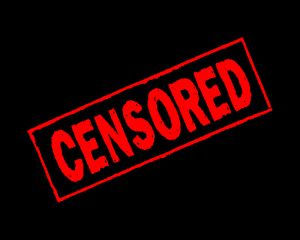 A friend has said to me more than once that he only reads non-fiction because that way he learns something from every book he reads.
A friend has said to me more than once that he only reads non-fiction because that way he learns something from every book he reads.
Being a fiction lover, I always disagreed, but did not articulate why I knew for sure that it was an incomplete truth. Ray Bradbury makes the argument for me in Fahrenheit 451.
This story is a tribute to a love of books and learning. You learn something from every book – fiction or non fiction. In non-fiction books, more often than not, the learning is direct and immediate: unlock your creative powers, learn HTML, yoga, language or the cross stitch.
Stories or fiction are not as direct – we need to allow the ideas, philosophies and arguments to soak in, percolate and then amalgamate into an individual’s own perception. And that’s why I love fiction – it opens your eyes to so many new worlds and dimensions and possibilities. And it’s not easy and offered on a plate – you have to work to get something out of it. Fahrenhiet 451 celebrates getting wonderful, freeing ideas from books.
I happened to finish reading Fahrenheit 451 to coincide with the end of Banned Books Week – and what better book to celebrate the movement with! This is also a book on my Guardian Reading Challenge – so two birds, one stone….
Synopsis: Written 50 years ago, the story is set in a future that is eerily familiar – a “pre-echo”, if you will. This is no longer science fiction.
- The country is at war – a war that is undefinable and unclear. Fighter jets fly overhead all the time, yet the citizens have no idea what the war is about.
- Books have been banned – all books.
- People watch reality TV all day, and the characters on TV substitute real family and need for social interaction.
- No one walks or exercises or does anything for pleasure. People are told what to think and do.
- There is no discourse – everyone is fed their roles and lines and brainwashed into numbness and stupidity by establishment controlled TV and radio.
- Learning is prohibited, free thinking and speech banned.
The characters: The protagonist, Montag, is a fireman. In this future, all homes have been made fire-proof, so the fireman’s job is to start fires and burn books and the homes of people who own books.
Montag’s wife Mildred, has accepted all the distractions that society has to offer – she doesn’t feel any need to look further than her family on the three huge TV walls in their home. This doesn’t mean that she is happy. But she is totally oblivious to this fact as well.
Clarisse, Montag’s neighbour is a breath of fresh air – a rebel – she thinks, her family sits together to talk, exchange ideas. A catalyst, she gets Montag thinking. She is a threat to the order of things.
Faber is the old professor whom Montag turns to for help. He seems to speak for the author in some ways – he has knowledge from books and loves them. He has been quiet too long even though he is aware of the emptiness of life. Once Montag starts to question their lives, Faber is invigorated into action, supporting Montag and helping him break free.
Once Montag meets Faber, he realises that what they are burning is not just paper and ink, but ideas and knowledge that has been passed on from one person to another. A shared breadth of knowledge that is no longer available to anyone.
There is more than one way to burn a book. And the world is full of people running about with lit matches,
says Ray Bradbury in the Afterword of this book. A sentiment that is echoed in the story by Fire Captain Beatty.
Bigger the population, the more minorities. Don’t step on the toes of the dog lovers, the cat lovers, doctors, lawyers, merchants, chiefs, Mormons, Baptists, Unitarians, second-generation Chinese, Swedes, Italians, Germans, Texans, Brooklynites, Irishmen, people from Oregon or Mexico.
There is always someone who will get offended by what you’ve said or what you think. If we let that affect us or change the way we think, we’d all think alike and act alike – that’s the end of creativity and individualism.
It’s a book that makes you think and maybe rethink… The pace is breathless, yet the book is one to be savoured slowly. Put it down after a chapter or a powerful paragraph and think about it.
Don’t miss the interview with Ray Bradbury at the end of this edition (Ballantine’s 50th year edition). And read the Afterword and Coda (something I almost never do). This is one of those books that I’ll look back at and think, “It changed my life.”
For a lighter look at how easily you can offend people, read Shazia Mirza’s On the offensive.










